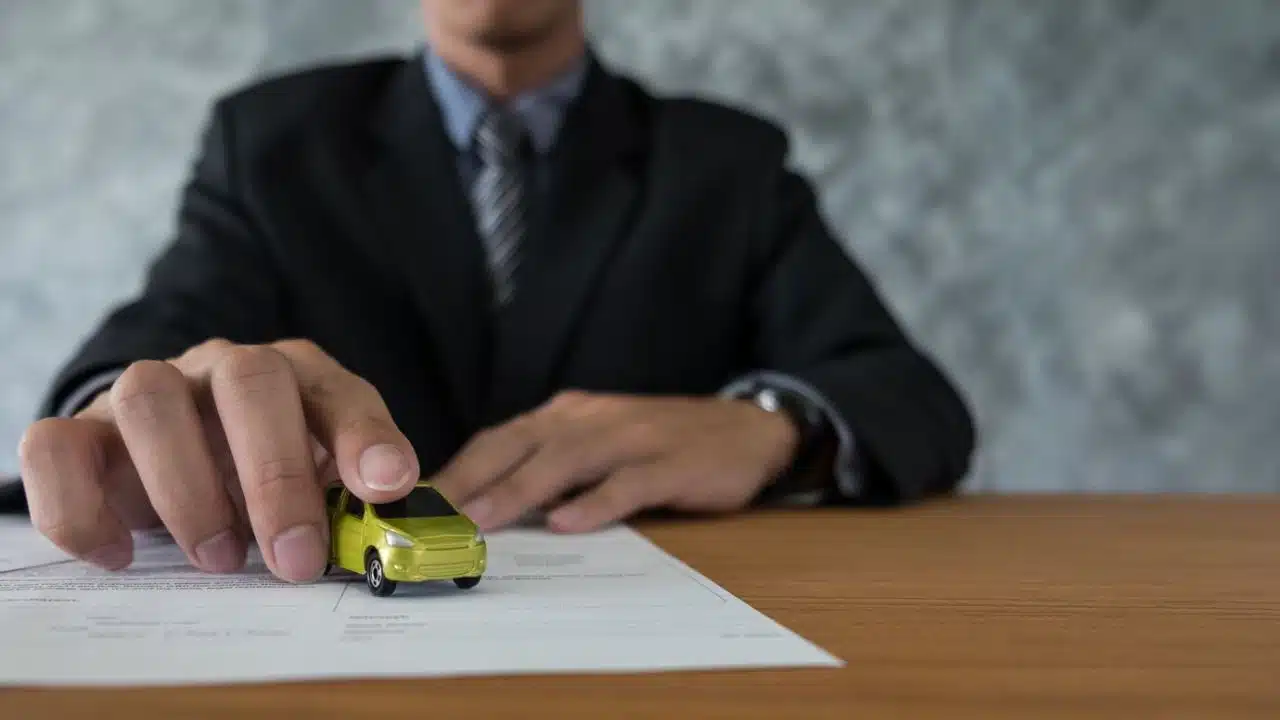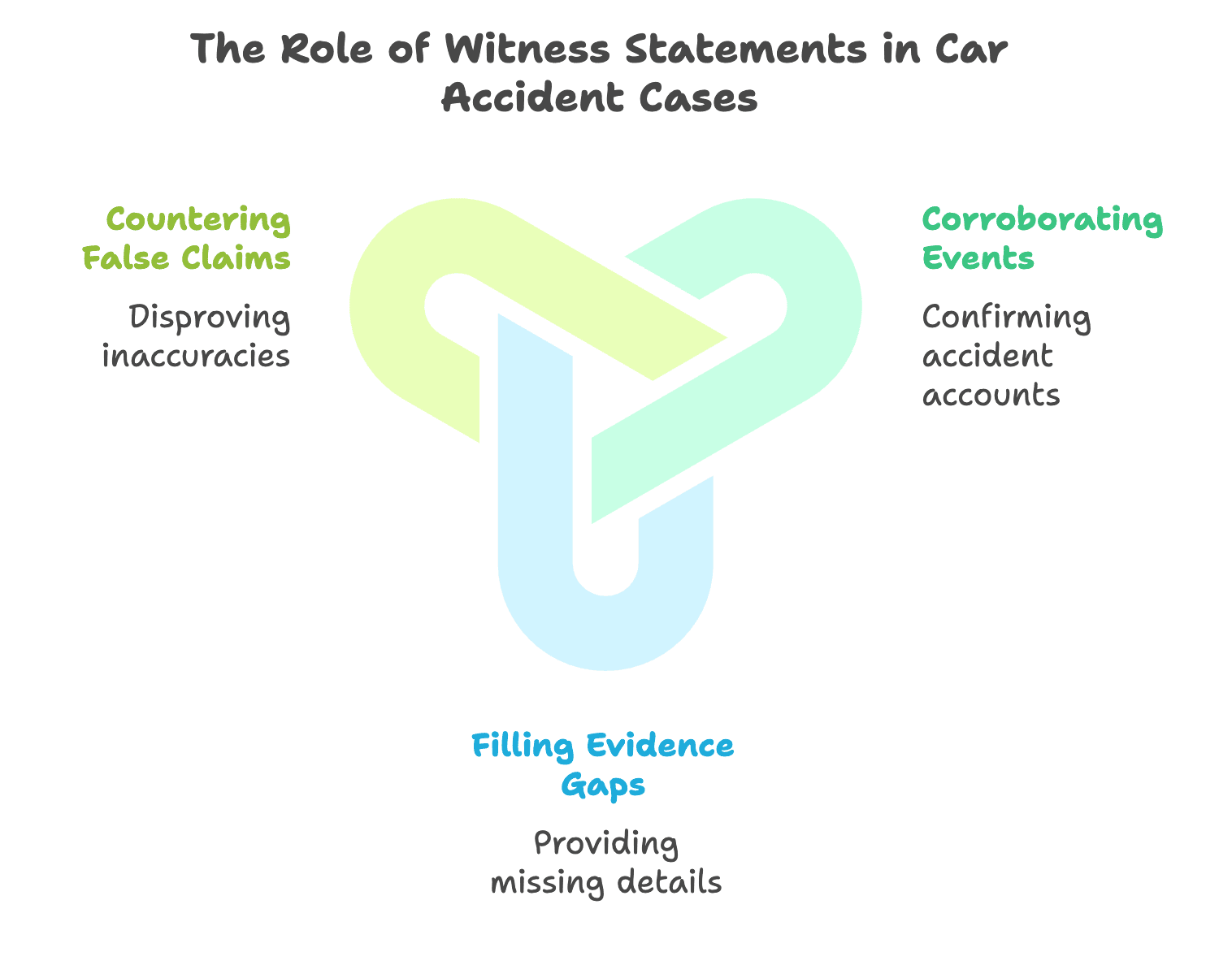Car accidents can be chaotic, leaving those involved confused and overwhelmed. When seeking compensation for injuries and damages, witness statements can play a crucial role in determining liability and strengthening a personal injury claim.
Independent witnesses provide unbiased accounts of the accident, helping to fill in details that may not be apparent from police reports or the statements of those directly involved. Here’s why witness statements are vital in car accident lawsuits and how they can impact the outcome of a case.
How Witness Statements Strengthen Your Claim
Witness statements serve as crucial evidence in a car accident case by providing an objective perspective of what happened. Insurance companies, attorneys and courts rely on these statements to reconstruct events and establish fault. Here’s how witness statements help:
1. Corroborating Your Version of Events
If another driver is responsible for the accident but disputes liability, a witness statement can confirm your account. Independent witnesses who were not involved in the accident are more likely to be perceived as credible by insurance adjusters and the court.
2. Filling in Gaps in Evidence
Sometimes, accident victims may not remember key details due to the shock of the crash. Witnesses can provide additional context, such as:
- The speed and direction of the vehicles involved
- Traffic signals and road conditions
- Whether the at-fault driver was distracted or violating traffic laws
3. Countering False Claims
If the other party fabricates details to avoid liability, witness testimony can help refute false claims. This is particularly important in cases where the at-fault driver tries to shift blame or deny responsibility.
Types of Witnesses in a Car Accident Case
Not all witnesses carry the same weight in a legal case. Some types of witnesses may have stronger credibility than others, depending on their vantage point and relationship to the accident.
1. Independent Eyewitnesses
These are bystanders who had no personal connection to the drivers involved. Their statements are often the most valuable because they are seen as neutral and unbiased.
2. Passenger Witnesses
Passengers in any of the vehicles involved can provide testimony, but their credibility may be questioned since they may have a personal stake in the case.
3. Expert Witnesses
In complex cases, accident reconstruction experts, medical professionals or forensic analysts may be called to testify based on physical evidence, medical records and crash dynamics.
4. First Responders and Law Enforcement Officers
Police officers at the scene can serve as witnesses, particularly when they prepare an accident report. Their observations regarding skid marks, vehicle positions and initial statements from drivers and witnesses can be key pieces of evidence.
How to Obtain a Witness Statement
Gathering witness statements as soon as possible after an accident is essential. Here are steps to ensure you secure this valuable evidence:
1. Identify Witnesses Quickly
If you are physically able, look around and ask bystanders if they saw the accident. Get their contact information, including their names, phone numbers and email addresses.
2. Ask Witnesses to Write Down Their Observations
Written statements are preferable because they capture details while the memory is still fresh. Witnesses should include specifics like time, location, road conditions and what they observed before, during and after the accident.
3. Record Video or Audio Statements
If a witness is willing, use your smartphone to record their account. Be sure to get their consent before recording.
4. Provide Witness Information to Your Attorney
If you hire a Lafayette auto accident lawyer, they will contact witnesses to gather additional statements or request depositions if necessary.
Challenges with Witness Statements
While witness statements are valuable, there are challenges associated with relying on them in a lawsuit:
Memory Fades Over Time
The sooner you collect a witness statement, the more accurate it is likely to be. Delays in obtaining statements can lead to forgotten details or inconsistencies.
Witnesses May Be Difficult to Locate
Some witnesses leave the scene without providing contact information. Others may move away or become unreachable over time.
Witness Bias or Inaccuracy
Not all witness statements are 100 percent reliable. Some individuals may misinterpret what they saw or may unintentionally provide conflicting details. Insurance adjusters and defense attorneys may challenge these inconsistencies.
The Legal Impact of Witness Statements
Strong witness testimony can make or break a car accident lawsuit. Here’s how it influences different stages of the legal process:
Insurance Claims
Insurance companies evaluate witness statements when determining fault. A strong witness account can help ensure a fair settlement offer.
Settlement Negotiations
Attorneys often use witness testimony to negotiate higher settlements. If an insurance company knows a credible witness supports your claim, they may be more likely to offer a fair amount to avoid litigation.
Court Trials
If your case goes to trial, witness statements can serve as compelling evidence. Live testimony from a credible witness can sway a jury’s decision and reinforce your case.
Witness statements are an essential component of any car accident lawsuit. They provide independent verification of what occurred, help establish liability and counter false claims. If you’re involved in an accident, acting quickly to secure witness testimony can significantly strengthen your claim. By gathering strong evidence and seeking legal assistance when needed, you can improve your chances of obtaining the compensation you deserve.






































